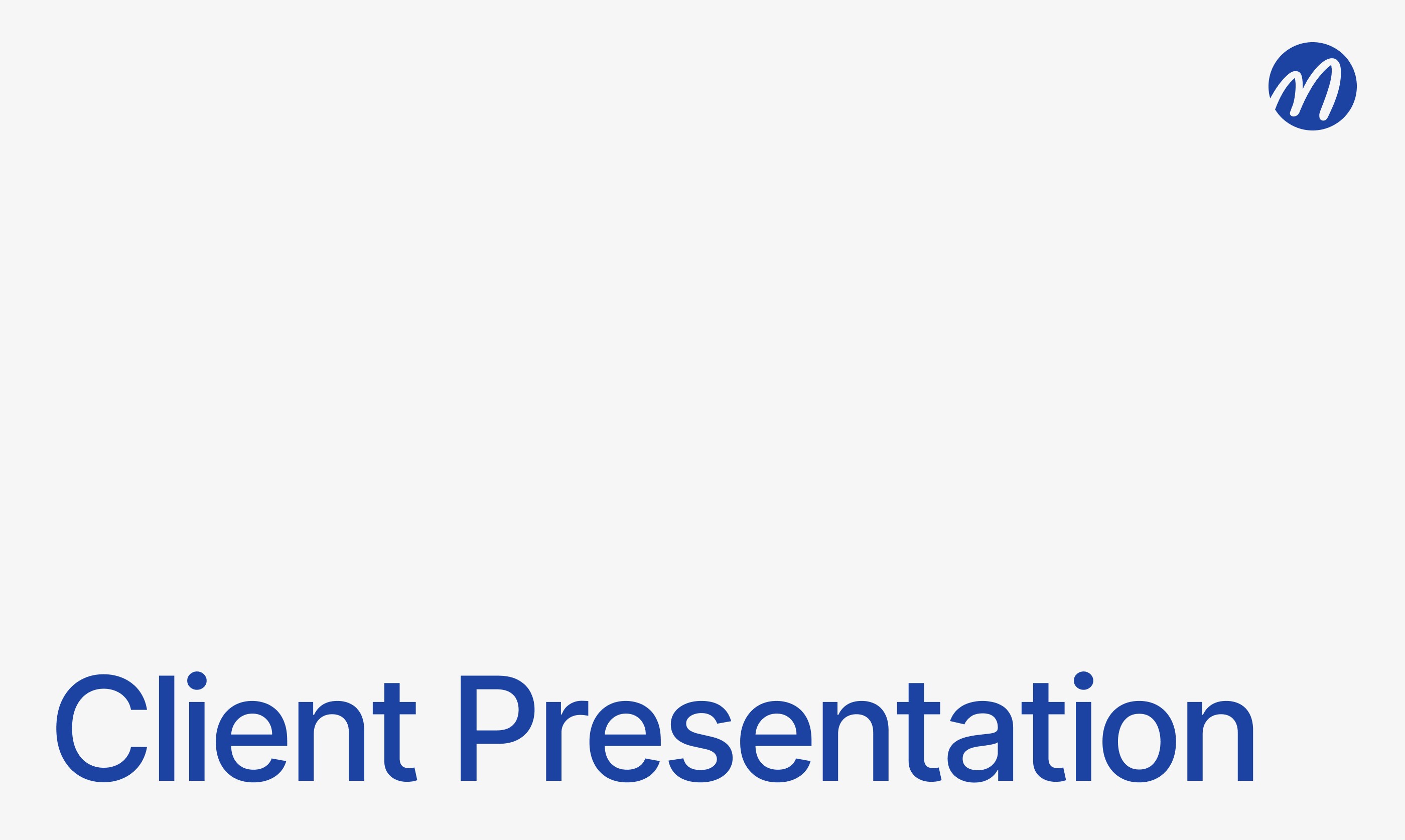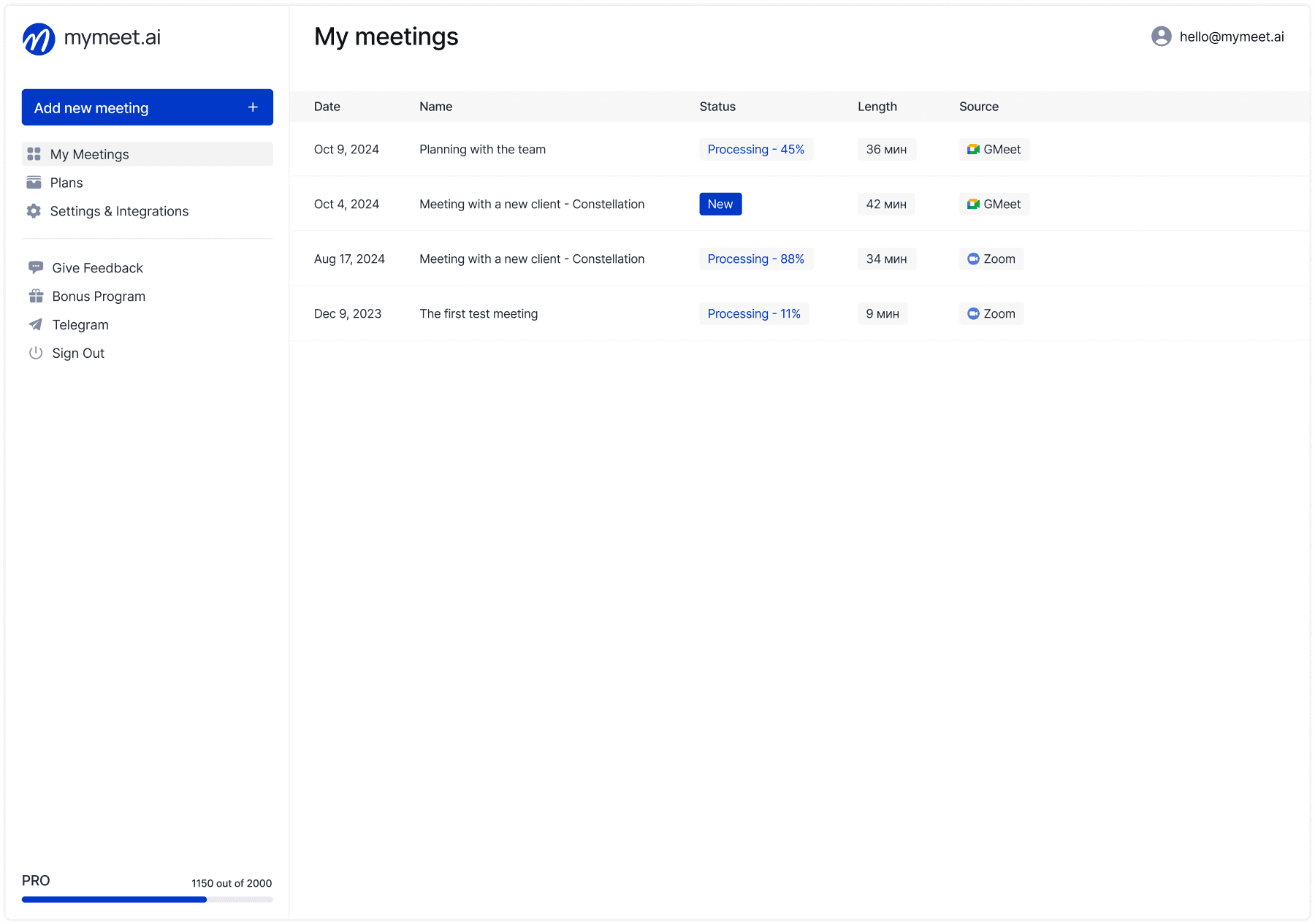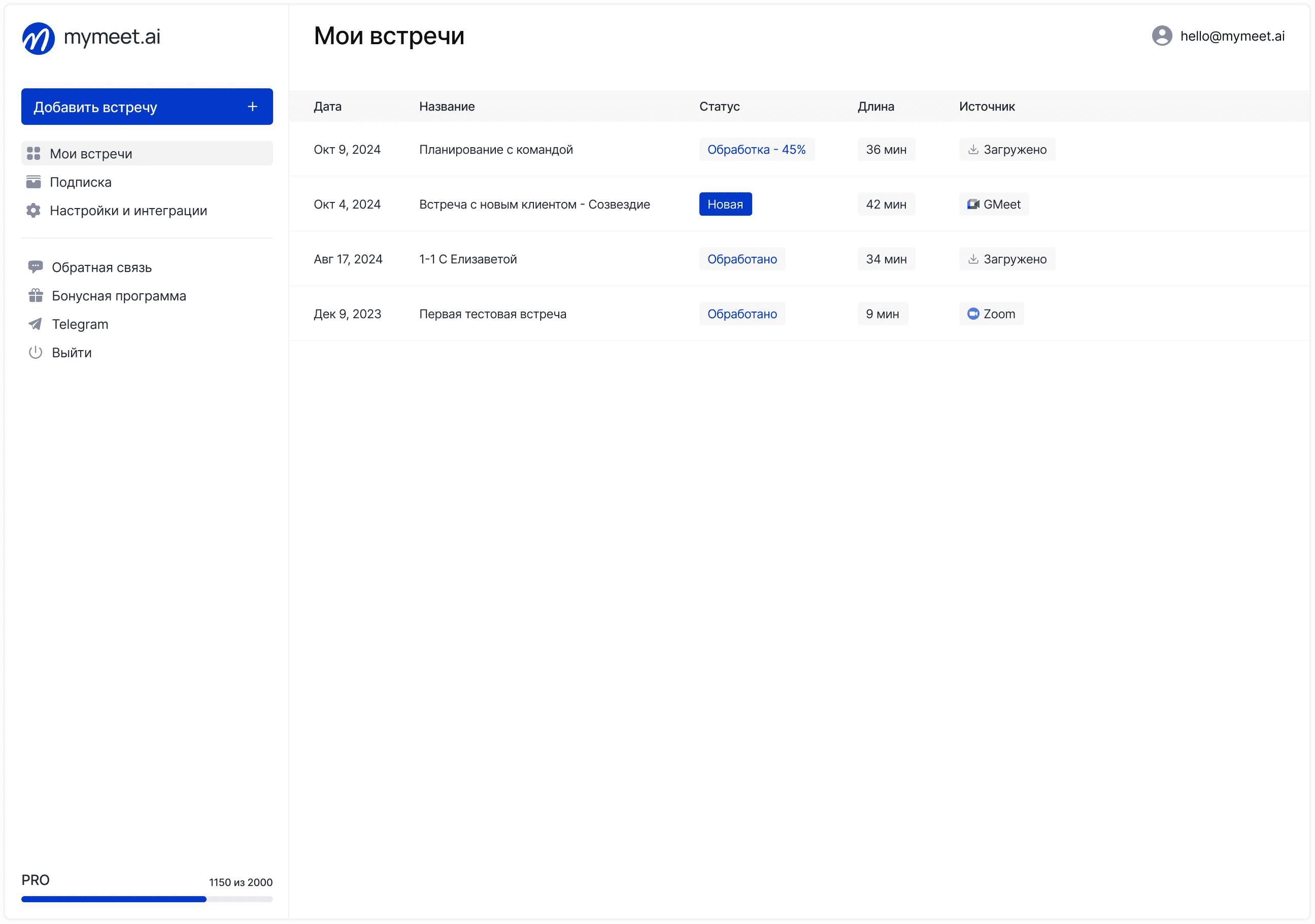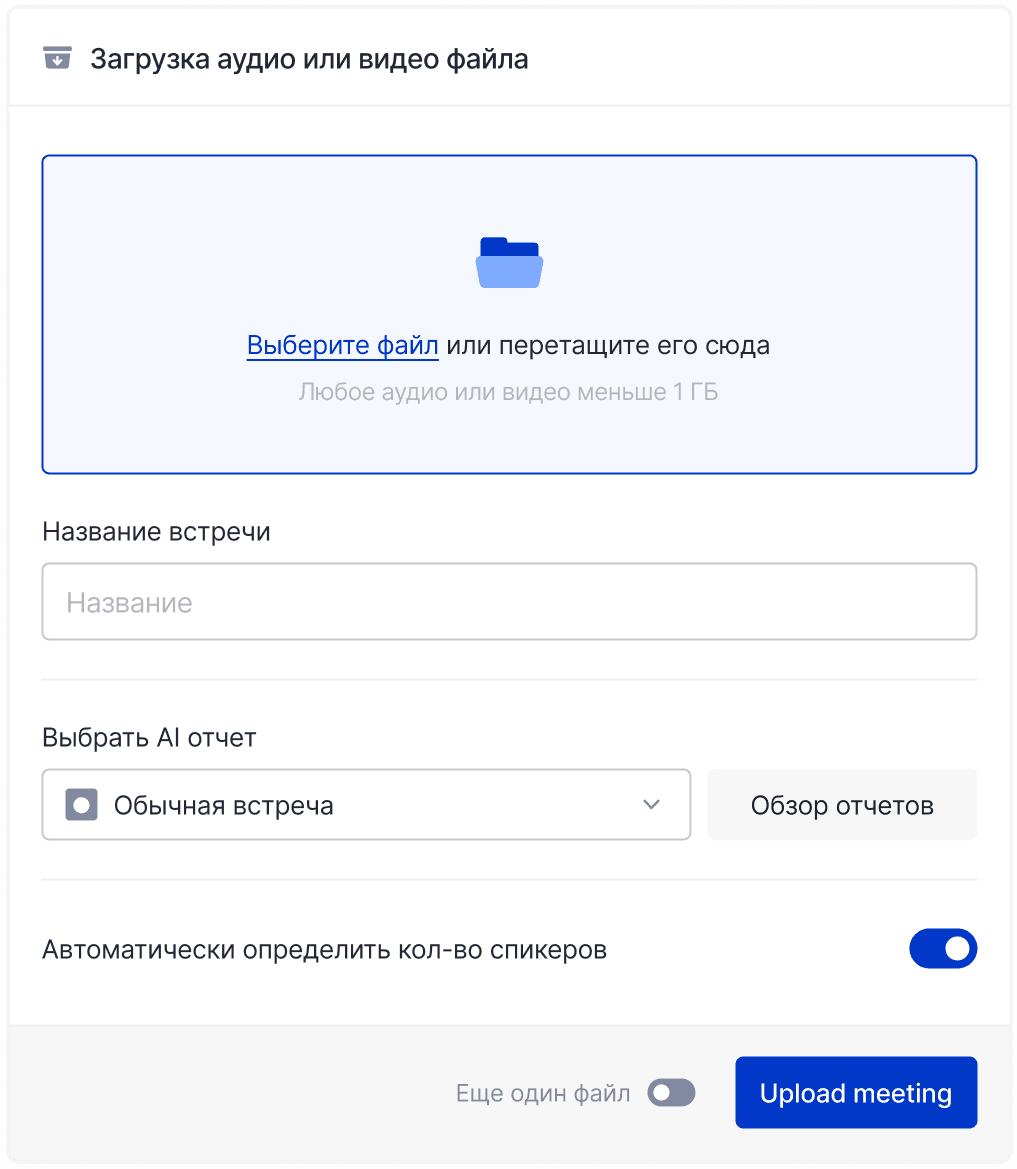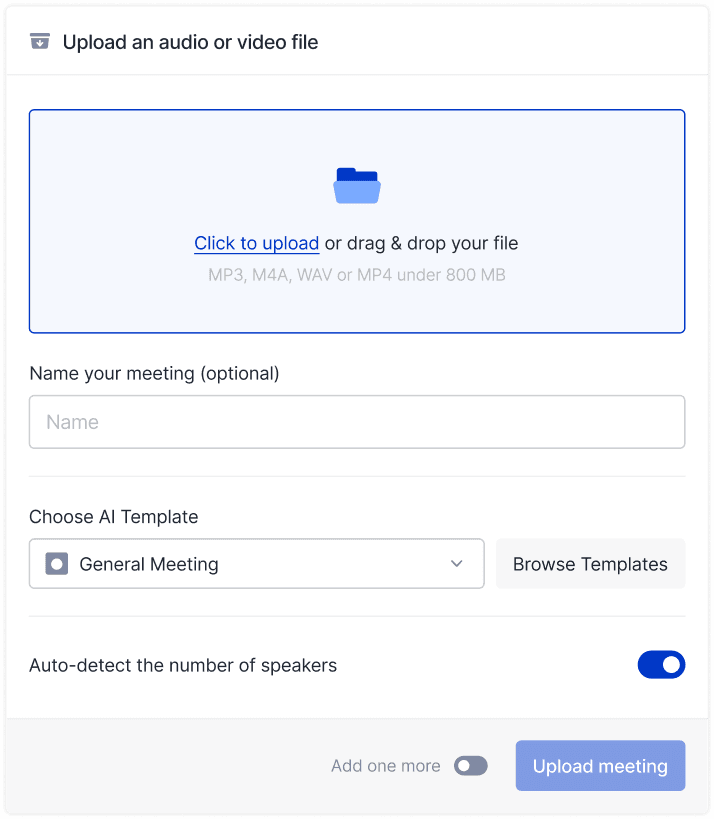Meeting Tips

Radzivon Alkhovik
May 28, 2025
Remember the last truly productive meeting you attended. What made it so effective? Most likely, behind it stood a moderator with a unique facilitation style, whose personal brand transformed an ordinary meeting into a structured, dynamic process with concrete results.
The best moderators are like chef's with signature dishes. They have their own recipe for a successful meeting: specific moderation techniques, trademark phrases, and characteristic approaches to problem-solving. Their individual facilitation style becomes a recognizable personal brand that participants value and associate with productive, effective meetings.
In this article, I'll explain how to find your moderator style and transform it into a strong personal facilitator brand—whether you moderate weekly planning meetings, strategic sessions, or large-scale conferences.
Why Moderation Style Matters for Meeting Effectiveness
Imagine visiting a doctor. They listen attentively, ask precise questions, explain complex issues simply—and you leave with a clear understanding of the situation and an action plan. Next time, you'll go to this same doctor, even if you have to wait. This is how a meeting moderator's reputation and personal brand works.
A unique moderation style isn't just a set of techniques. It's the foundation upon which group trust and predictable outcomes are built. When a moderator has a recognizable facilitation style, participants know what to expect and engage more quickly in the work.
Research shows that meetings led by facilitators with a clear moderation approach and developed personal brand are one-third more effective at achieving their goals. Participants in such meetings more often report satisfaction with the process and willingness to implement decisions.
For the moderator themselves, a personal facilitation brand becomes professional capital. A reputation as an effective facilitator with a characteristic moderation style opens doors to important projects, increases influence within the organization, and creates new career opportunities.
Key Elements of an Individual Moderation Style
Forming your own meeting facilitation style is like assembling a puzzle. You need to find elements that suit you specifically and connect them into a harmonious whole that reflects your personal facilitator brand.
Communication Approach and Voice Characteristics
Your voice and manner of speaking instantly create a first impression and set the tone for the entire event. They become an important component of your moderation style and personal facilitator brand.

Speech pace, volume, and intonation variety form the moderator's sound portrait. Some facilitators, like Morgan Freeman, captivate with measured speech, while others, like Jimmy Fallon, engage with dynamic energy. Strategic pauses, masterfully used by Barack Obama, can be no less expressive than words. Signature phrases and characteristic speech patterns become a recognizable part of your moderation style.
Observe yourself: where do your natural vocal strengths lie? Perhaps you have a warm, inviting tone that creates a trusting atmosphere? Or an energetic, charging manner of speaking that awakens enthusiasm? Find your advantage and consciously develop it as part of your personal facilitator brand.
Visual Identity
How you look becomes an important part of your moderation style and personal facilitator brand.

Elements of a modern moderator's visual identity:
Clothing style appropriate to the context, but with a personal accent
Characteristic accessories or details (bright glasses, unusual tie, signature color)
Quality and design of visual materials
Organization of physical or virtual space
Consistent background for online meetings or recognizable setup for offline events
Famous TV hosts and moderators often use "signature" visual elements—from Larry King's red suspenders to specific color combinations in clothing. These details become visual anchors for the personal facilitator brand.
Finding the right balance is important: your appearance should be memorable enough to stand out, but not so eccentric as to distract from the meeting's content. Your moderation style should only emphasize your individuality, not overshadow the meeting's purpose.
Structural Approach to Facilitation
The way you organize the discussion process is a key part of your moderation style and personal facilitator brand.

A structural approach to moderation includes signature formats for beginning and ending meetings, preferred discussion facilitation techniques, and unique ways of allocating time. Your methods for handling difficult participants and conflicts, as well as the balance between strictly following the plan and flexibility, also form a recognizable facilitation style.
Jeff Bezos is known for his "two-pizza rule" for limiting the number of meeting participants and his method of "starting meetings with silent reading of a memorandum." These structural elements have become part of his unique moderation style and management brand.
Consider which structural elements reflect your values and help achieve results. Perhaps starting each meeting with a quick round of personal updates? Or a final summary with a clear list of decisions and next steps? Such features will become defining for your personal facilitator brand.
Emotional Atmosphere
The emotional climate you create in meetings becomes an important part of your moderation style and personal facilitator brand.

The meeting atmosphere is formed through the level of communication formality, use of humor and personal stories, and ways of encouraging participants. Your approach to managing tense moments and the balance between focusing on tasks and attention to people also determine the emotional coloring of the process.
Richard Branson is known for creating an informal, almost playful atmosphere in business meetings, while Elon Musk employs a direct, result-oriented approach with minimal social conventions. Both moderation styles are effective in their context and authentic to their users, forming their recognizable personal facilitator brand.
What emotional atmosphere do you naturally create around yourself? Use this strength consciously when forming your individual moderation style.
How to Find Your Unique Moderation Style
Building a personal facilitator brand begins with self-knowledge and experimentation. Here's a step-by-step process to help you develop your characteristic moderation style.
Analyzing Strengths and Natural Inclinations
Before trying to copy someone else's moderation style, explore your natural talents and predispositions as a meeting facilitator.
Start with self-analysis: what qualities do colleagues and friends value in you? In what situations do you feel most confident? What types of meetings are easiest for you to lead? Which moderation techniques are most comfortable for you? What are your key values as a professional?
Request feedback from colleagues about your current moderation style. Often others notice our strengths that we take for granted. Additionally, you can use self-analysis tools such as Gallup Strengths Finder or DISC profiles to identify natural talents upon which to build your personal facilitator brand.
Studying Successful Moderators and Their Styles
Observing experienced facilitators with strong personal brands is an excellent way to expand your moderation toolkit.
Analyze techniques of well-known conference moderators, observe internal leaders in your organization, and study video recordings of successful presentations. Participate in facilitation masterclasses and read interviews with experienced facilitators about their approaches to moderation.
Pay attention not only to what successful moderators do, but how these elements combine with their personality and context. Don't blindly copy—adapt and integrate into your developing moderation style and personal facilitator brand.
Experimenting with Different Moderation Techniques
Developing an individual moderation style requires practice and experimentation. Try different approaches to find what works specifically for you.
Test a new moderation technique at each meeting, request feedback after experiments, and keep a moderator journal noting successful and unsuccessful experiences. Practice in safe situations with lower stakes and gradually incorporate successful elements into your permanent arsenal.
Don't be afraid to step outside your comfort zone—some of the most effective elements of your future personal facilitator brand may lie beyond it. Remember: every successful moderator was once a beginner.
Adapting to Different Contexts and Audiences
A strong personal facilitator brand is flexible and able to adapt to different situations while maintaining its recognizable essence.
Group size, meeting purpose, participants' cultural context, format (in-person, online, hybrid), and the event's formality level—all these factors require adaptation of your moderation style. Develop several variations of your basic style for different situations, while preserving the key elements that make your approach unique.
Digital Support for Moderation Style: How mymeet.ai Enhances Your Facilitation Approach

Even the most talented moderator is familiar with this situation—a brilliantly conducted meeting with virtuoso facilitation, yet a week later no one remembers the decisions made. Your unique moderation style worked during the discussion, but the results seem to have evaporated.
mymeet.ai acts as a digital partner that not only captures every word but also highlights the essence, structures information, and helps your moderation style work even after the meeting ends. It's not just a recording program, but a true amplifier of your moderator brand.

How mymeet.ai helps moderators with their own style:
Freedom from "secretarial" functions—while you guide the discussion in your signature way, AI captures all details, freeing your energy and attention

Individual moderation coach—by analyzing your meeting recordings, you see which signature techniques work better than others, allowing you to refine your style
Moderator influence amplifier—even after the meeting, participants can return to the exact record, where not only the content but also the structure you created is preserved

Group dynamics translator—the system shows who dominated the discussion and who should have been more actively involved, helping perfect your group balancing skills
Time machine for moderators—the ability to study any moment of the meeting and see how your approach to a difficult situation worked
The system is especially valuable for moderators developing their own recognizable style. It helps dynamic facilitators structure an energetic flow of ideas, analytical ones deepen the analysis of complex concepts, and empathetic ones not miss emotional nuances of the discussion.
Ultimately, the best tool for a moderator is one that enhances your strengths and compensates for weaknesses, allowing your unique facilitation style to fully flourish.
Developing Technical Skills to Support Moderation Style
Even the most charismatic personal facilitator brand requires a solid technical foundation. These skills provide the structure upon which your individual moderation style is built.
Time Management Mastery
The ability to effectively allocate time is a fundamental skill for any moderation style.
Develop time management techniques for moderators: using timers, methods for "soft" and "hard" interruption of prolonged speeches, dynamic time redistribution. Skills for quickly returning discussion to the main course and strategic use of time buffers are important.
Develop your signature approach to time management, which will become part of your personal facilitator brand. Perhaps elegant transitions between topics or a characteristic way of indicating remaining time.
The Art of Asking Questions
Questions are one of the most powerful tools for a moderator. They guide discussion, stimulate thinking, and engage participants.
Master different question types: opening—to launch productive discussion, clarifying—to clarify expressed ideas, transitioning—to change discussion direction. Add provocative questions to stimulate non-standard thinking and closing questions for summarizing and moving to decisions.
Develop your characteristic style of formulating questions. Some moderators are known for their brief, pointed questions, others for expansive, contextual ones. Find an approach that resonates with your personal facilitator brand and suits your audience.
Skills for Working with Complex Group Dynamics
The ability to manage group processes in complex situations distinguishes outstanding moderators and strengthens their personal facilitator brand.
Develop skills for balanced involvement of different types of participants, constructive conflict resolution, and working with resistance and criticism. Master methods for maintaining group energy and strategies for redirecting unproductive behavior.
Your approach to resolving complex situations can become a significant part of your moderation style. The ability to calmly and effectively handle tense moments significantly increases trust in you as a facilitator.
Challenges in Developing a Personal Moderator Brand and Solutions
On the path to a vibrant personal facilitator brand, you'll inevitably face certain challenges. Being prepared for them will help overcome these obstacles and continue developing your moderation style.
Overcoming the Most Common Difficulties
Understanding typical moderator problems helps anticipate and effectively solve them.
Fear of public speaking and uncertainty can be reduced through regular practice in a safe environment. Difficulties with managing dominant participants are overcome by mastering "soft" redirection techniques and creating a structure that gives voice to everyone. Challenges with maintaining balance between structure and flexibility are resolved through advance planning of several meeting development scenarios.
Adapting to different formats (especially transitioning from in-person to online) requires conscious rethinking of techniques and additional practice. And burnout from intensive communication load is prevented through conscious energy distribution and regular recovery.
Receiving and Integrating Feedback
Quality feedback is a powerful catalyst for growth for any moderation style and personal facilitator brand.
Regularly collect participant reviews through surveys and direct communication, invite colleague-observers to your meetings. Practice video recording your sessions for self-analysis, and create trusting relationships with a mentor. It's important to focus not only on problems but also on strengths.
Learn to separate constructive suggestions from subjective preferences and integrate useful ideas into your developing moderation style while maintaining its integrity and authenticity.
Balance Between Authenticity and Professional Requirements
One of the subtlest tasks in creating a personal facilitator brand is finding the balance between staying true to yourself and meeting expectations in a professional context.
Define your unchangeable values and moderation principles that you're not willing to compromise on. Adapt external manifestations of style to the context while preserving the essence. Gradually introduce personal elements into more formal environments, honestly discuss expectations with clients and management.
Remember that the most effective moderation style is one that allows you to remain yourself while using your strengths to achieve meeting goals. As your reputation develops, you'll be able to allow yourself greater freedom of self-expression.
Promoting a Personal Moderator Brand
Developing a recognizable moderation style is only half the journey. It's equally important to make your personal facilitator brand visible to potential clients, employers, or participants.
Creating a Moderator Portfolio

Documenting your experience and achievements helps demonstrate your moderation style to potential clients.
Include in your portfolio video fragments of your best moderations (with participants' consent), cases of successfully conducted events with measurable results, client and participant testimonials. Add a description of your approach to different meeting types and visualization of your moderation methodology.
Consider creating a digital portfolio that clearly demonstrates your unique moderation style and achieved results.
Networking and Professional Communities
Connections with other moderators and potential clients are critically important for developing a personal facilitator brand.

Participate in professional associations of facilitators and moderators, regularly be present in specialized online communities. Attend conferences and events on facilitation, organize masterclasses and experience exchanges with colleagues. Develop relationships with potential clients.
Networking should be an authentic extension of your personal facilitator brand. Treat each interaction as an opportunity to demonstrate your moderation style in action.
Conclusion
Creating a personal facilitator brand is a journey requiring time, reflection, and constant practice. A unique moderation style doesn't emerge overnight, but once formed, it becomes your professional distinction and valuable asset.
An effective personal moderator brand is always based on authenticity. Don't try to imitate others—find your own voice, building on your natural strengths. Experiment with various moderation techniques, but integrate only those that resonate with your personality and values.
Remember that the best moderators are those who make the process invisible, bringing participants and meeting content to the foreground. Paradoxically, the less noticeable a moderator is during a successful meeting, the stronger and more valuable their personal brand becomes afterward.
Invest time in developing technical skills, emotional intelligence, and structural thinking. Use modern digital tools like mymeet.ai to enhance your moderation abilities. Collect and analyze feedback, constantly improving your approach.
Ultimately, your moderation style and personal facilitator brand are your professional signature. It should be so characteristic that participants can recognize your hand even without seeing the moderator's name. When people start saying, "This meeting was conducted in [your name]'s style"—you can be confident that your personal moderator brand is formed and working for you.
FAQ About Creating a Moderation Style
Can an introvert develop a vibrant moderation style?
Absolutely! Many outstanding moderators are introverts. Your moderation style can build on introversion's strengths: attentive listening, thoughtful structure, deep questions. Instead of energetic charisma, focus on creating a safe space and precise interventions. Plan energy recovery after intensive moderations.
How do I find balance between formality and my own moderation style?
Start by understanding expectations: how formal is the organizational culture? Determine which elements of your personal style need to be preserved and which can be adapted. Gradually introduce individual touches, evaluating reactions. Professionalism doesn't equal formality—you can be simultaneously professional and authentic.
How do I adapt my moderation style for an online environment?
Make meetings shorter, add more interactive elements, use visual materials. Strengthen your digital presence: quality sound and video, thoughtful background. Develop skills for "reading the room" through the screen: pay attention to facial expressions, chat activity, nonverbal reactions.
How do I handle conflicting participants while maintaining my moderation style?
Include conflict management in your personal facilitator brand. Define your approach—for example, using humor to defuse situations or calmly offering to "agree to disagree." Practice conflict neutralization techniques without changing your style. Remember: the ability to manage complex situations strengthens your brand.
How do I develop my own style while working in a corporate environment with established rules?
Start small—introduce elements of your style gradually. Link your innovations to business results, demonstrating their value. Find areas where you have more freedom, such as internal team meetings. Create allies who appreciate your approach. Over time, your successful moderation style may become the new standard.
How do I know if my moderation style is truly effective?
Style effectiveness is determined by specific results: are meeting goals achieved, do participants voluntarily return to your sessions, does the quality of decisions and their implementation improve? Collect quantitative (time, activity, task completion) and qualitative (satisfaction, engagement) indicators.
How long does it take to develop a recognizable personal moderator brand?
This is an individual process, but typically 6-12 months of regular practice are required to form the style foundations. A recognizable moderator brand in the professional community may take 2-3 years to develop. The key factor isn't time but the quantity and diversity of moderation experience and your reflection.
Should I change my moderation style depending on the meeting type?
Your basic style should remain recognizable but adapt to the context. Think of it as a wardrobe: basic elements remain unchanged, but their combination changes depending on the situation. Develop several variations of your style for different meeting types, preserving key distinctive features.
Which aspects of moderation style are most difficult to develop?
Most moderators find emotional flexibility the most challenging—the ability to adapt the emotional atmosphere to group needs while maintaining authenticity. Developing "presence"—that elusive quality that makes people listen—is also difficult. These aspects require conscious practice and self-observation.
How do I avoid burnout with intensive moderation practice?
Establish clear boundaries: limit the number of intensive sessions per week. Implement recovery rituals before and after complex moderations. Vary meeting types to avoid constantly using the same resources. Find a support group of other moderators for experience exchange and emotional release.
Radzivon Alkhovik
May 28, 2025


